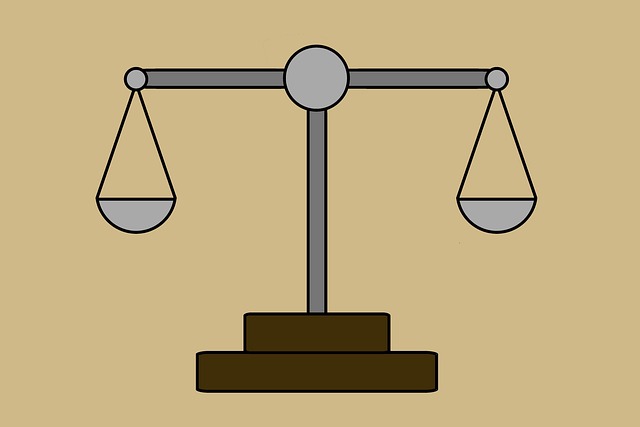Navigating complex healthcare legal issues like privacy, informed consent, medical malpractice, and billing disputes is crucial for professionals and patients. Healthcare laws vary across regions, impacting cases involving family property division or corporate clients. Effective conflict resolution in family property division requires balancing patient autonomy with their loved ones' best interests, especially regarding medical decisions with financial implications. Legal experts specializing in healthcare law offer expert guidance through investigations, negotiations, and legal proceedings, utilizing methods like mediation and Alternative Dispute Resolution (ADR) to achieve fair resolutions, preserving relationships and saving costs, as demonstrated by successful case studies.
“In the intricate landscape of healthcare, legal issues often surface as a complex web of ethical dilemmas and regulatory challenges. This article explores the multifaceted realm of healthcare law, focusing on three key aspects: understanding common legal challenges, unraveling the complexities of family property division during medical disputes, and delving into effective conflict resolution strategies. We also examine ethical considerations and present real-world case studies demonstrating successful approaches to resolving healthcare-related legal disputes, with a particular emphasis on family property division conflict resolution.”
- Understanding Healthcare Legal Issues: Common Challenges and Their Impact
- Family Property Division in Healthcare: Navigating Complexities and Conflict Resolution Strategies
- Ethical Considerations and Legal Frameworks for Effective Conflict Management
- Case Studies: Exploring Successful Approaches to Resolving Healthcare Legal Disputes
Understanding Healthcare Legal Issues: Common Challenges and Their Impact

Understanding healthcare legal issues is crucial for both professionals and patients, as they often involve complex scenarios that can significantly impact lives. Common challenges include privacy concerns, informed consent, medical malpractice, and billing disputes—all demanding careful navigation to avoid indictment. Healthcare laws vary across the country, adding another layer of complexity, especially in cases involving family property division or corporate and individual clients.
Effective conflict resolution necessitates a nuanced approach that balances patient rights with institutional responsibilities. For instance, managing sensitive data during family property division requires stringent protocols to protect privacy while ensuring compliance. Similarly, handling medical disputes must consider the best interests of patients without unduly burdening healthcare providers. A strategic understanding of these legal issues is vital to maintaining trust and providing quality care in a dynamic healthcare landscape.
Family Property Division in Healthcare: Navigating Complexities and Conflict Resolution Strategies

Family Property Division in healthcare involves navigating complex legal and emotional terrains, especially when it comes to resolving conflicts related to assets and liabilities. As families plan for the future or deal with unforeseen circumstances like illness or disability, ensuring a fair division of property becomes paramount. This process can be intricate, involving various types of assets, including real estate, financial investments, and valuable personal items, each carrying emotional and monetary significance.
Effective conflict resolution strategies are essential in these situations. Skilled attorneys specializing in healthcare law can guide families through all stages of the investigative and enforcement process, ensuring a smooth transition. Their expertise enables them to achieve extraordinary results, leveraging their unprecedented track record in negotiations and legal proceedings. This not only mitigates disputes but also safeguards the interests of all involved parties, fostering a more harmonious resolution.
Ethical Considerations and Legal Frameworks for Effective Conflict Management

In the intricate landscape of healthcare law, ethical considerations and robust legal frameworks are essential for effective conflict management, particularly in matters involving family property division. As complex as these cases often are, a well-structured approach can ensure fairness and minimize disruption. The primary focus here is balancing patient autonomy with the best interests of their loved ones, especially when medical decisions impact significant financial implications. This delicate navigation requires attorneys to possess not just legal expertise but also a deep understanding of bioethics and family dynamics.
When addressing family property division conflicts, it’s crucial to consider the unique aspects of healthcare. For instance, in cases involving white-collar and economic crimes, where individuals may have been involved in fraudulent activities, separating legitimate medical decisions from criminal conduct becomes vital. A proven general criminal defense strategy can offer a roadmap for managing these complexities, ensuring that legal resolutions are fair, just, and consistent with the unprecedented track record of successful conflict resolution.
Case Studies: Exploring Successful Approaches to Resolving Healthcare Legal Disputes

In addressing healthcare legal issues, particularly complex disputes involving family property division and related conflicts, case studies offer invaluable insights into successful conflict resolution strategies. Across the country, various respective businesses have navigated challenging scenarios, achieving winning challenging defense verdicts through innovative approaches. For instance, a recent case involved a contentious dispute over the distribution of assets between family members post-divorce. The legal team employed a strategic combination of mediation and alternative dispute resolution (ADR) methods, fostering open communication and ultimately reaching a mutually agreeable solution without escalating to trial.
This successful approach underscores the effectiveness of tailoring conflict resolution tactics to the unique dynamics of each case. By encouraging collaboration rather than adversarial proceedings, such strategies not only save time and legal costs but also preserve relationships, which is especially crucial in matters concerning sensitive healthcare data and family property division. This holistic view of dispute resolution has proven pivotal in shaping positive outcomes across different legal landscapes.
In navigating healthcare legal issues, understanding common challenges and their impact is paramount. The article has explored critical aspects such as family property division in healthcare, highlighting the complexities and offering strategic conflict resolution methods. Ethical considerations and robust legal frameworks have been presented as essential tools for effective dispute management. Through insightful case studies, successful approaches to resolving healthcare legal disputes have been showcased, emphasizing the importance of proactive strategies in this dynamic field. By addressing these issues, we can foster a more harmonious and efficient healthcare environment, focusing on patient care while mitigating legal complexities, particularly in family property division conflict resolution.






